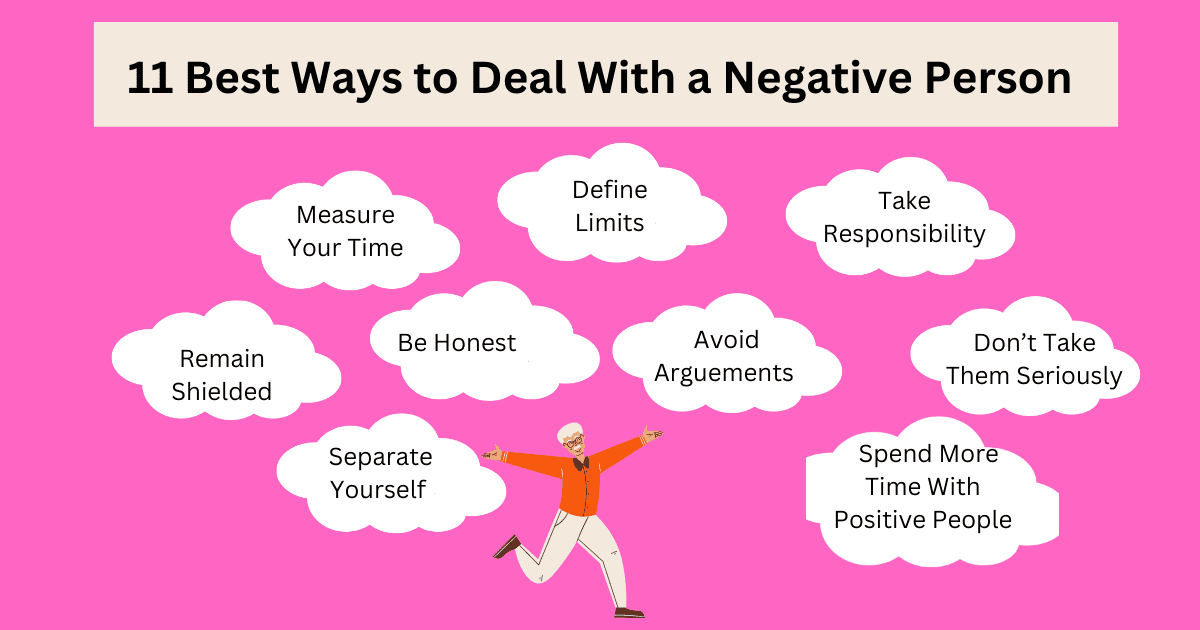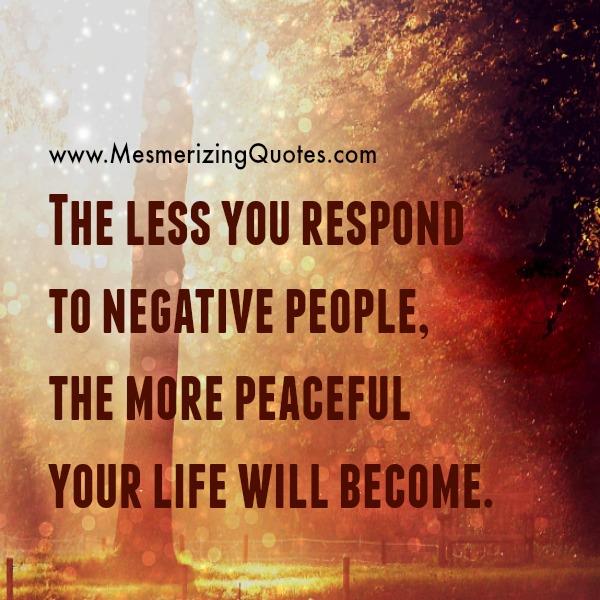How To Get Negative People Out Of Your Life

The pervasive hum of negativity can be more than just an annoyance; it can be a silent saboteur, eroding mental well-being and hindering personal growth. Studies consistently show a correlation between exposure to negative influences and increased stress, anxiety, and even depression. Cultivating a positive environment, therefore, often necessitates a conscious effort to distance oneself from individuals who consistently exude negativity.
This article delves into practical, evidence-based strategies for identifying and mitigating the impact of negative individuals in your life. We will explore techniques for setting boundaries, limiting contact, and fostering a support system of positive influences. It is crucial to approach this process with empathy and self-awareness, recognizing that sometimes, the best course of action involves difficult but necessary decisions.
Recognizing the Signs of Negativity
Identifying chronic negativity can be challenging, as it often manifests in subtle ways. Pay attention to individuals who consistently complain, criticize, or engage in gossip. These behaviors, while seemingly harmless on the surface, can create a toxic atmosphere that drains your energy and dampens your spirit.
Dr. Susan Cain, author of "Quiet: The Power of Introverts in a World That Can't Stop Talking," highlights the importance of recognizing your own emotional responses. Notice how you feel after spending time with certain individuals. Do you feel energized and uplifted, or drained and discouraged?
Setting Healthy Boundaries
Establishing clear boundaries is paramount to protecting your mental and emotional space. This involves defining what behaviors you will and will not tolerate from others. Communicating these boundaries assertively but respectfully is crucial.
"Daring Greatly" author Brené Brown emphasizes the significance of vulnerability in setting boundaries. State your needs clearly and without apology, even if it feels uncomfortable. Remember, you are not responsible for managing other people's emotions.
Limiting Contact Strategically
In some cases, complete avoidance may not be feasible, especially with family members or colleagues. However, you can still limit your exposure to negativity by strategically reducing contact. Shorten conversations, decline invitations to social gatherings, or create physical distance whenever possible.
Focus your interactions on specific tasks or topics, avoiding potentially triggering subjects. For example, if a family member consistently complains about their health, gently steer the conversation towards neutral ground.
"The less you respond to negative people, the more peaceful your life will become,"according to numerous studies on interpersonal dynamics.
Cultivating Positive Relationships
Actively seek out and nurture relationships with individuals who are supportive, encouraging, and optimistic. Surround yourself with people who inspire you to grow and achieve your goals. These positive influences will help buffer the impact of negativity from other sources.
Join clubs, volunteer organizations, or groups based on shared interests. These activities provide opportunities to connect with like-minded individuals and build meaningful relationships. Dr. Martin Seligman, the founder of positive psychology, emphasizes the importance of social connections for overall well-being.
Self-Care and Mindfulness
Prioritizing self-care is essential when dealing with negative influences. Engage in activities that nourish your mind, body, and soul. This could include exercise, meditation, spending time in nature, or pursuing hobbies that bring you joy.
Mindfulness practices, such as meditation and deep breathing exercises, can help you manage stress and emotional reactivity. Jon Kabat-Zinn, a pioneer in mindfulness-based stress reduction, advocates for cultivating present moment awareness to mitigate the impact of negative thoughts and emotions.
Seeking Professional Support
If you are struggling to cope with the impact of negative individuals, consider seeking professional support from a therapist or counselor. A trained mental health professional can provide guidance and strategies for managing difficult relationships and improving your overall well-being. They can offer an unbiased perspective and help you develop coping mechanisms tailored to your specific situation.
Cognitive Behavioral Therapy (CBT) is a particularly effective approach for addressing negative thought patterns and developing healthier coping strategies. CBT can help you identify and challenge negative beliefs that contribute to feelings of stress and anxiety.
Moving Forward with Positivity
Removing negative people from your life is not always easy, but it is an investment in your mental and emotional health. By setting boundaries, limiting contact, cultivating positive relationships, and prioritizing self-care, you can create a more supportive and fulfilling environment for yourself. Remember that your well-being is paramount, and you have the right to surround yourself with positivity.
While navigating these changes, remember to practice empathy. Recognize that negativity often stems from underlying pain or insecurity. However, you are not responsible for fixing others. Focus on protecting your own well-being and creating a positive path forward.


















